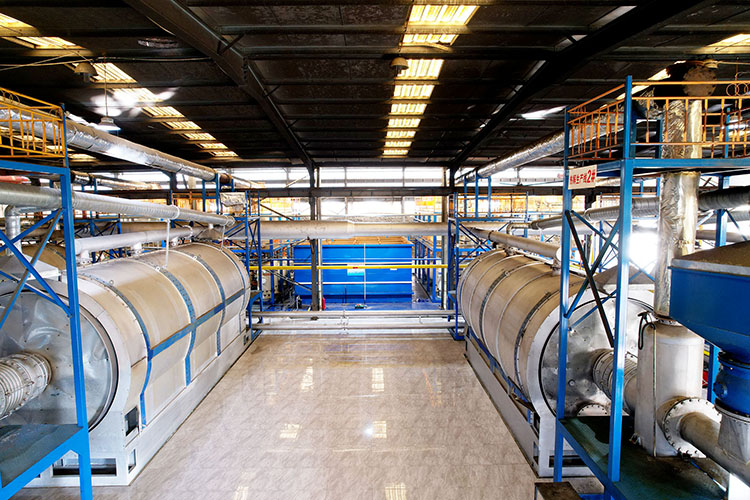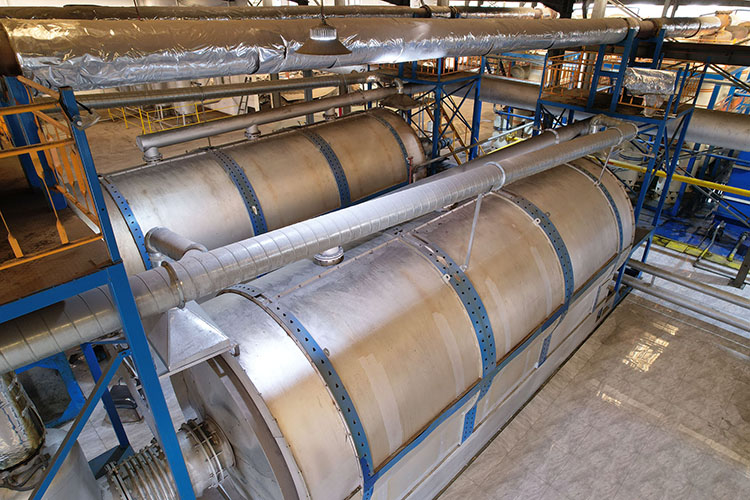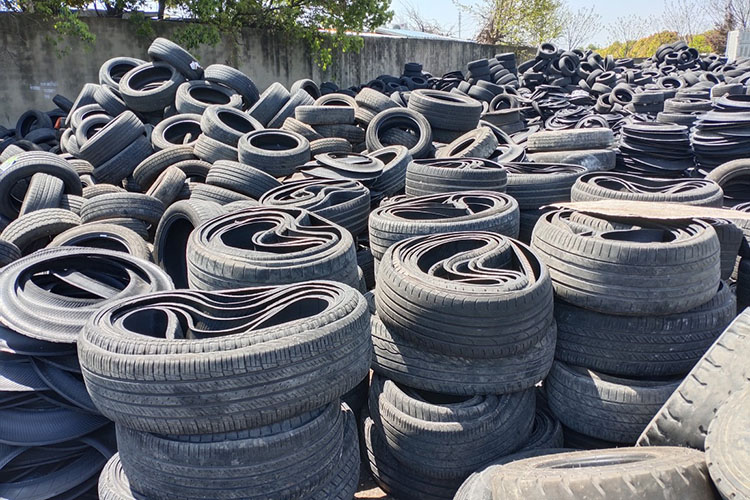With the increasing global awareness of environmental protection and the growing demand for resource reuse, the disposal of waste tires has attracted widespread attention. Waste tires not only occupy a large amount of space, but their difficult to degrade characteristics have caused long-term harm to the environment. However, by using waste tire refining equipment, these wastes can be converted into useful fuel oil and other by-products, achieving efficient resource utilization and environmental protection.

If waste tires are not effectively treated, it will bring serious environmental pollution problems. The traditional incineration treatment method releases a large amount of harmful gases, seriously polluting the atmospheric environment. By using waste tire refining equipment for treatment, the emission of harmful substances can be significantly reduced. These devices use thermal cracking technology to decompose waste tires into reusable products such as fuel oil, carbon black, etc., thereby achieving harmless treatment. In addition, refining equipment can effectively reduce the accumulation of waste tires, reduce the risk of fire and mosquito breeding, and is of great significance for environmental protection.
Waste tires contain a large amount of useful components such as rubber and steel wire. Through the processing of refining equipment, these components can be separated and further refined into fuel oil, carbon black, and other products. Fuel oil can be used as industrial fuel to replace some traditional petroleum products and reduce energy costs. Carbon black can be used to produce rubber products, dyes, etc., improving resource utilization and achieving resource recycling. This not only helps to reduce dependence on new resources, but also brings considerable economic benefits.
The economic benefits of waste tire refining equipment are mainly reflected in two aspects: firstly, by refining by-products such as fuel oil and carbon black, it can bring direct economic income to the enterprise; The second is to reduce production costs by replacing traditional energy and materials. Fuel oil, as an efficient industrial fuel, has a high market demand, relatively stable prices, and good economic returns. As an industrial raw material, carbon black is widely used in rubber, plastics, coatings and other fields, with broad market prospects and high added value. By refining waste tires, it is possible to achieve value-added utilization of resources and create more economic benefits for enterprises.

Modern waste tire refining equipment has mature technology, high degree of automation, simple operation, and low maintenance costs. Most of these devices adopt fully enclosed operation, effectively avoiding the leakage of exhaust gas and wastewater, and complying with environmental standards. At the same time, the equipment is equipped with advanced control systems, which can achieve real-time monitoring and adjustment of the production process, ensuring production safety and stability. The maturity of technology and the reliability of equipment provide strong support for the implementation of waste tire refining projects. Investing in waste tire refining equipment requires considering multiple costs, including equipment costs, construction costs, operating costs, environmental treatment costs, and policy expenses.
Equipment cost is one of the main investments in waste tire refining projects. The cost of equipment may vary depending on its processing capacity and level of automation. Generally speaking, the price of small devices ranges from hundreds of thousands to millions of RMB, while large devices may reach tens of millions of RMB. The selection of equipment needs to be reasonably configured based on the actual needs and production scale of the enterprise to ensure the maximization of economic benefits.
The construction cost includes expenses for factory construction, foundation treatment, equipment installation and commissioning, etc. This part of the cost varies depending on the region and the size of the factory. The construction of factory buildings needs to consider environmental requirements and a reasonable layout of production processes to ensure smooth and efficient production processes. At the same time, the installation and debugging of equipment also require professional technical personnel to operate to ensure the normal operation of the equipment.

Operating costs include daily operating expenses such as raw material procurement, energy consumption, personnel salaries, and equipment maintenance. The procurement cost and transportation cost of waste tires are important components of operating costs. The energy consumption and maintenance costs of the equipment also need to be calculated in detail to ensure the continuity of production and the long-term stable operation of the equipment. Reasonable operational management and cost control are the key to achieving project economic benefits.
The waste tire refining project will generate a certain amount of exhaust gas, wastewater, and solid waste during the production process, which requires effective treatment to ensure compliance with environmental standards. The investment and operating costs of environmental treatment equipment are an important component of project investment costs. Enterprises need to configure corresponding processing equipment according to environmental protection requirements, and conduct regular maintenance and inspections to ensure the normal operation of environmental protection facilities.
When investing in waste tire refining projects, policy costs may include environmental permits, etc. Enterprises need to understand and master relevant policies, timely handle relevant procedures, to ensure the legal and compliant operation of projects. Helps to reduce investment risks of the project and improve its economic benefits. In summary, the waste tire refining equipment has significant environmental and economic benefits and is a green and environmentally friendly project worth investing in. The application of waste tire refining equipment can not only achieve efficient utilization of resources, but also bring considerable economic benefits to enterprises, with broad development prospects.
Yongle Environmental Protection is mainly engaged in the research and development, production and sales of complete sets of technical equipment for organic solid waste disposal and comprehensive utilization. Production and manufacturing, domestic waste treatment equipment, tire pyrolysis equipment, medical waste disposal equipment, hazardous waste disposal equipment, and achieve efficient and comprehensive utilization of resources through independently developed low-temperature anaerobic pyrolysis equipment technology solutions.
Tags:Advantages and Investment Cost Analysis of Waste Tire Refining Equipment,waste tire refining equipment,YONGLE GROUP
 Latest news
Latest news


























